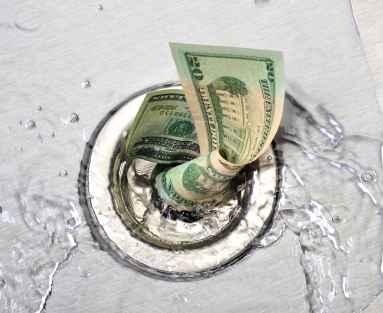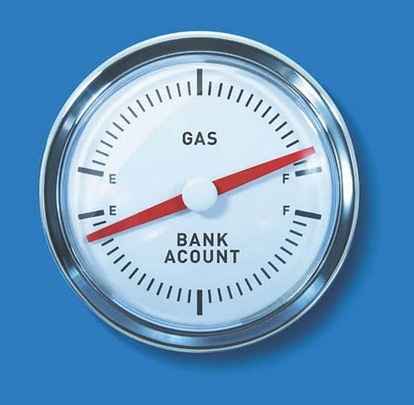Data Shows Massive Inflation Starting to Bite Hard,
Unleaded Regular Gasoline Up 52 Percent,
Fresh Fruits and Vegetables Rising Fast
As expected the high-turn consumable goods are starting to rise in price rapidly. The Bureau of Labor and Statistics (BLS) has released the consumer price analysis from April (remember there’s a big lag) [Top Line Data Here – Detailed Sector Data Here] The trend is rapid inflation continuing with no end in sight. CORE inflation just jumped the most since 1982.
 Overall prices are up 4.2 percent year-over-year, which is three times the rate of inflation under Joe Biden than under President Trump. Inflation hurts the lower and middle economic class much harder; and the specific inflation sectors show massive increases on the goods and services that blue collar workers use most.
Overall prices are up 4.2 percent year-over-year, which is three times the rate of inflation under Joe Biden than under President Trump. Inflation hurts the lower and middle economic class much harder; and the specific inflation sectors show massive increases on the goods and services that blue collar workers use most.
It is specifically the Biden economic policies that are to blame for the scale of these increased prices. Inflation of this scale is an outcome of policy.
Biden is focused on helping multinationals and Wall Street; President Trump was focused on helping small businesses and Main Street. We are now seeing the impact from these two differing economic priorities.
Regular unleaded gasoline is up a whooping 51.9 percent from last year [Table 7]. Higher gas prices directly hit the middle class the hardest and also increases the cost of transporting all goods. Keep in mind this is a snapshot of prices approximately six weeks ago and gasoline prices have been rising even more rapidly recently. Not good news.
The status of the economy, the employment picture and the stimulus money shows up in the cost of used vehicles rising over 22% last month and 21% compared to last year. People are holding on to their vehicles and when able purchasing newer used vehicles, reflected in the lower inflation on new cars and trucks (2%). Paycheck and wage security is becoming an issue again, especially with the cost of gasoline and food.
The inflation data in the food at home (grocery prices) doesn’t look too dramatic until you drill down into the faster turn fresh fruits and vegetables. Citrus products up 7.8% (lemons, limes and oranges are very expensive) with fresh fruits overall increasing by 6.2%. The less perishable food products, longer shelf life items, reflect slower inflation due to warehouse and shelf inventory (a natural lag). However, the fresh fruits and vegetables carry the immediate price of higher energy and transportation costs. Lettuce up 5.1% year over year. [TABLE 7 has the details]
The rapid increases in price for food and gasoline are hitting the middle-class hard. This will have a downstream effect on more luxury items and durable goods. Spend more on food/gas and you might not be able to purchase that new table you wanted. Durable good inventories increase and layoffs in those sectors begin.
It will be very interesting to watch how the housing market responds over the next few months. If the trendline continues we should see a considerable softening in home sales, again depending on region, as the inflation hits the working class – and the FED might respond by raising interest rates.

